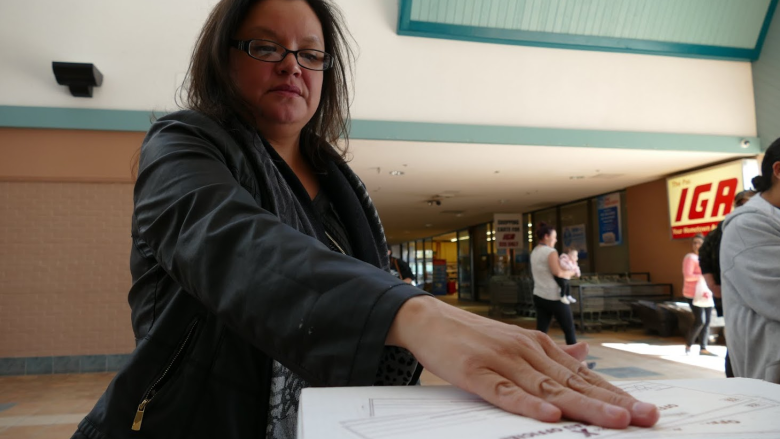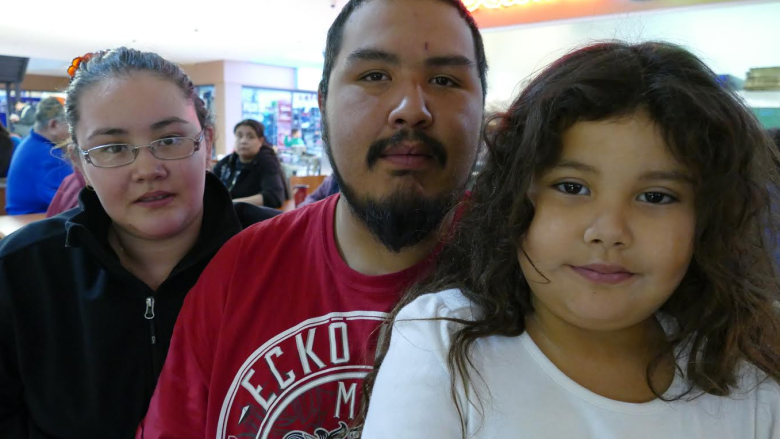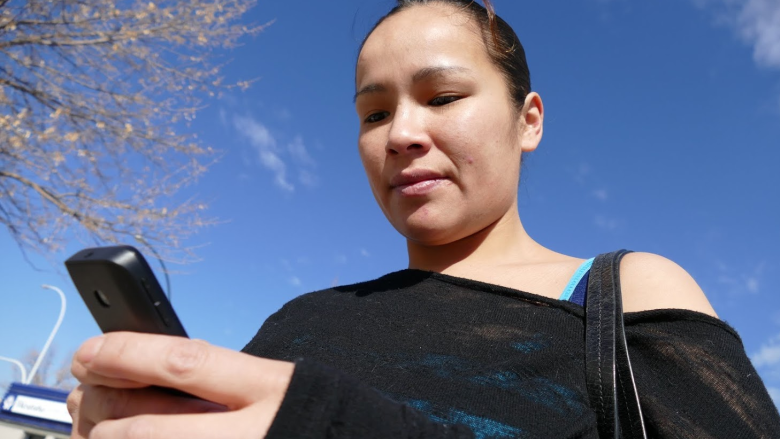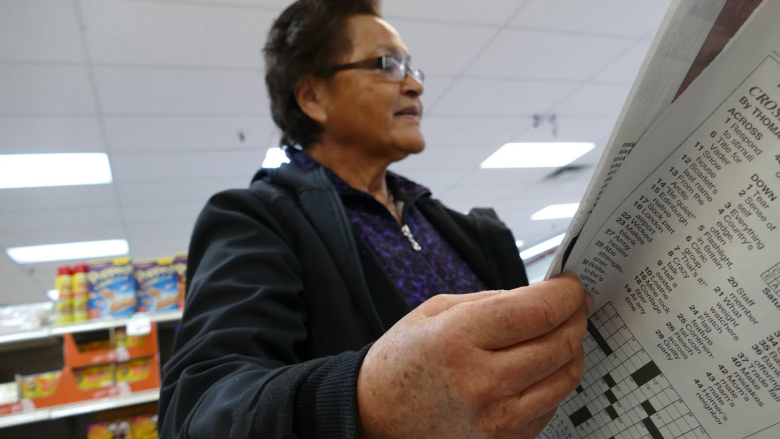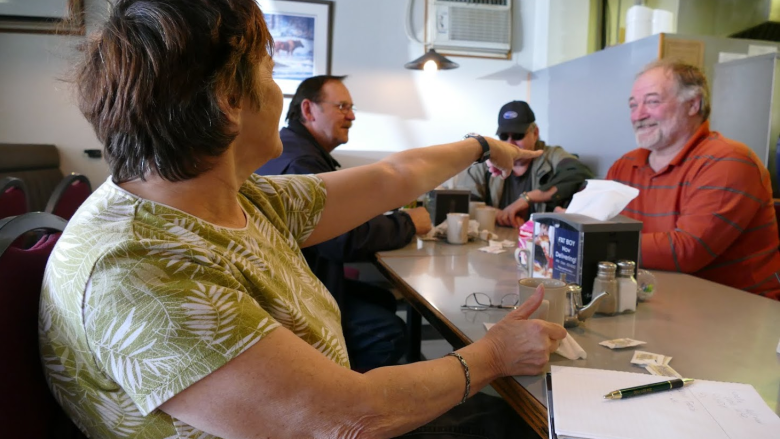Lowest voter turnout may get worse in The Pas byelection: Political scientist
On average, only three in 10 people in The Pas constituency vote. In 2011, The Pas saw the lowest voter turnout in Manitoba at 30.4 per cent.
Political scientist Christopher Adams said in Tuesday's provincial byelection the turnout may be even worse.
"We know when we look at constituency races in turnout that when people feel like their constituency is not in a competitive situation that it will have a low turnout," he said.
In The Pas' last three elections, the NDP won with about 70 per cent of the vote.
Combine the lack of competition with the fact that it's a byelection, which historically receive low voter turnout already, and Adams said it's a recipe for very few votes.
Aboriginal people vote less
Roughly half the voters in The Pas electoral district are aboriginal.
Adams said the constituency's high population of aboriginal people is another factor that will lead to a low voter turnout.
"The aboriginal population still are lagging behind the population in terms of turnout," Adams said.
Some voters feel disengaged
Not far from one of the advance voting booths, in the Otineka Mall on the Opaskwayak Cree Nation (OCN), several voters explained their reason for not voting.
Chris Head is an aboriginal man who said he is following the byelection, but said he won't vote because he's fed up.
"They're not being looked after," he said referring to the average The Pas voter. "Their voices are not being heard."
Head hasn't exercised his right to vote in years because he said he's "just tired of all the politics."
He said if he were to vote, it would probably be for Amanda Lathlin, his cousin.
'I don't feel like my vote matters at all'
At the mall's food court, chowing down with his young family, Norman Budd shares a similar story of apathy.
The 29-year-old, First Nations man isn't voting. Budd said he and his wife have full time jobs, and life is already going well.
"Actually it don't matter, I don't feel like my vote matters at all," he said. "I'm not a very bright guy, hey?"
Out on the sidewalk in downtown The Pas, across the river from OCN, CBC News found a voter who planned to vote.
Jack Thomas McKay, 21, planned to vote for NDP candidate Amanda Lathlin, though he didn't know which party she represented.
"No I don't," he said, referring to Lathlin's party affiliation. "But I read a pamphlet, a few things they're doing about the environment I liked it."
He said he'd been in trouble with the law throughout his teenage years, but the young father is turning his life around.
"I didn't grow up too pretty, just had some issues with places to go, things to do," he said.
McKay said he planned to vote for a candidate who will set up more youth programming, so his child has more opportunities growing up in The Pas area.
He said more awareness is needed to get people interested in voting, and he'd like to help with that. He's working as a voting officer in the byelection.
Virtually tight-lipped
Online outreach and social media is not being used to a high degree by any of the three candidates.
Liberal candidate Inez Vystrcil-Spence posted a 13-minute-long campaign video to her Facebook page.
The other candidates have Facebook pages, but barely use them. None of the candidates are using a Twitter account for their campaigns.
NDP candidate Amanda Lathlin said she's "too busy" to use social media.
"Yes, it's a very important tool to get into," Lathlin said. "I'm not quite graduated into the Twitter, but I'm comfortable with Facebook."
Tory candidate Jacob Nasekapow said he's not interested in using much social media.
"It's a tactic that's been overused. If I used social media I would be playing into their (other politicians) hands," he said.
Social media may engage youth
A young voter in The Pas said it's a tactic that might make her pay attention to the campaign.
Mandy Pakchinos was unaware her town was in the middle of a byelection.
The 26-year-old said she's only voted once in her life. She couldn't explain why she didn't know about the byelection, but said she's on Facebook and Twitter and if the candidates were more present online she would have a greater chance of voting.
"I think it's pretty sad," she said about the historically low voter turnout in The Pas.
"If they (the average The Pas voter) really care they should be voting. It would help this town."
Candidates attempt to fight voter apathy
Elections Manitoba is in the middle of a push to get more turnout in the aboriginal community and with young people, both factors that impact turnout in The Pas.
The Progressive Conservative candidate said voter apathy in northern Manitoba in particular is caused by provincial governments caring more for southern communities, such as Winnipeg.
"The north once was vibrant with provincial elections," Tory Jacob Nasekapow said. "But throughout the years people more or less stayed away because the province kept stepping away from our communities. So people thought 'what's the use,' but I believe now it's changing and it's got to change."
When former NDP MLA Frank Whitehead was elected in a byelection in 2009, the turn out hit an all-time low of 29.65 per cent.
NDP candidate Amanda Lathlin said her story is an inspirational one that might draw people to the polls. Lathlin said, if elected, she would be the first aboriginal woman MLA in the history of Manitoba.
All three candidates in The Pas byelection are aboriginal.
"Lets get rid of that stereotype that young people don't care or don't believe in our system and therefore are not voting," Lathlin said. "Lets prove everyone wrong with aboriginal people as well, you know, because those are the two groups that probably have the lowest voter turnout."
Liberal candidate Inez Vystrcil-Spence said people write off elections because they feel like no one is listening.
"So what I was hoping to do in my dialogue with people was to let them know that I am able to capture their voice and I am able to take their stories and actually apply it in a meaningful way," she said.
NDP infighting may impact turnout
Political scientist Christopher Adams anticipates another factor that might impact turnout this time is the NDP infighting.
The governing New Democrats lived through a rebellion last fall which saw five top cabinet ministers and an NDP backbencher call on the premier to quit, citing low polling data as the reason he should step aside.
Premier Greg Selinger hung onto his job in a leadership race March 8, beating rebel MLA Theresa Oswald by a razor thin margin of only 33 votes.
Adams said some supporters who normally turn out to vote for the NDP may not vote because of it.
"I don't think it will have a major impact on the results," he said. "There are really two historical pillars of the NDP: one of those pillars is the North End of Winnipeg, the other is the north of Manitoba, and that's union and First Nations voters."
In the 1988 election, when the NDP collapsed and fell to third place, the party survived mostly because of northern constituencies like The Pas.
Currently, the four northern constituencies aside from The Pas (Swan River, Kewatinook, Thompson and Flin Flon) are represented with NDP MLAs.
"So even in tough times, since the 1960s, areas like The Pas have stuck with the NDP," Adams said.
An NDP faithful sticks with the party
Agnes Pranteau, 74, voted Thursday in the advance polls. Elections Manitoba reports 871 votes were cast of 12,475 potential voters during the advance voting period.
That's consistent with past elections that also saw low voter turnout. There were 757 votes cast during advance voting in the 2011 general election and 904 votes cast in advance during the last by-election in The Pas, in March 2009.
Pranteau lives in The Pas, but grew up on a reserve in southern Saskatchewan.
Despite the infighting in the NDP and a controversial nomination process that saw the NDP candidate win a tie-breaker with a coin toss, Pranteau said her vote for the NDP has never been in jeopardy.
"Every party goes through one of those stages," she said. "No one's perfect."
She is retired, but was a nurse on reserves in northern Manitoba and said the NDP has done a good job expanding education on reserves.
PC the voting minority in The Pas
Most of the people CBC News interviewed in The Pas and OCN, who knew about the byelection, said they were voting for the NDP. That reflects recent past elections.
In the 2011 election, the PC candidate came in second place with 23 per cent of the popular vote, up slightly from 21 per cent in the 2007 provincial election.
Leona French, 64, voted in the advance polls for the Progressive Conservatives. The Pas voter said she always votes for the PC, but said this election she wants them to win more than most.
"Nothing ever seems to get done up here," she said. "We got nothing," referring to more than 15 years of NDP government rule in Manitoba.
French cited crumbling infrastructure and a shortage in family doctors as major voting concerns.

